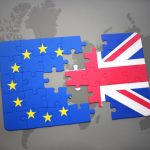What you need to know about GDPR

The concept of data protection has been around for many years, since the UK first implemented a Data Protection Act in 1984. The general data protection regulation is a piece of legislation drawn up by the European Commission to unify data protection within the EU and to govern the export of personal data beyond the EU’s boundaries.
GDPR is due to come into force across the EU in May 2018 following a two year transition period. Being a regulation rather than a directive, it doesn’t require enabling laws to be passed by member states.
How large can GDPR fines get in UK?

When GDPR (General Data Protection Regulation) comes into force in 2018, businesses not adhering to cybersecurity best practices risk either €20 million in fines or four percent of their annual global turnover, whichever is bigger.
The media has been buzzing about this a lot lately, but how much is four percent really, at least among UK organizations? According to PCI Security Standards Council -- that could be up to £122 billion. Here’s how PCI SSC came to that conclusion.
Few businesses are prepared for GDPR

The GDPR is drawing ever closer, but organizations which will be directly affected by it still don't know how to approach the new regulation, a new study by Dell shows. Ever since it was unveiled that the General Data Protection Regulation will come into effect in May 2018, surveys have been done to see if companies are preparing themselves for it, and if they will be ready to comply with it in time.
Never have these reports shown positive or encouraging results, and the new one by Dell is no different. Still, organizations aren't even close to being prepared. More than 80 percent say they know close to nothing about GDPR. Less than a third are ready for GDPR today. Almost 70 percent of IT and business professionals say they are not, and that they don't know if their companies are ready.
Business apps are not ready for EU's GDPR rules

Time is relentless. The GDPR is moving ever closer, while at the same time apps aren’t. And that’s a huge problem for businesses, because if apps are not GDPR-compliant, they’re not GDPR complaint. That can mean huge fines, possibly even the end of businesses.
The fact that apps are far away from being GDPR compliant came as a result of a new and extensive study by Blue Coat Labs. The company analyzed more than 15,000 enterprise cloud applications in use and 108 million enterprise documents stored and shared within them.
Brexit will not make GDPR mandatory in UK
Three in four apps do not meet GDPR requirements

Using cloud apps in a business environment, be it Shadow IT or not, is going to be risky business in a couple of years, as a vast majority of today’s widely used apps do not comply with the upcoming rules and regulations of the EU GDPR.
GDPR, or general data protection regulation, is a EU-crafted document aimed at regulating the corporate use of data, and how businesses must act in order to ensure maximum safety of customer data used, as well as privacy. It will come into force in less than two years.
Mozilla welcomes privacy-boosting GDPR data protection law updates

In a world more concerned than ever with privacy and data security, law makers are scrambling to keep up to date. With the growth of the internet, many old and inappropriate laws have been bent to fit a purpose they were not designed for. A case in point are European data protection directives which date back more than two decades.
In April this year a new law was adopted -- the General Data Protection Regulation, or GDPR. With compliance with the law required of the 28 EU member states by 25 May 2018, a two-year countdown is now underway. GDPR is welcomed by Mozilla who is using the 24-month compliance deadline to draw attention to some of the regulation's highlights.
EU GDPR: Get your data privacy act together

The moment of reckoning is on its way for companies that collect or store data on European Union citizens. Last week EU legislators signed data privacy regulations into law, creating what may be the most stringent data protection law in place today. The requirements will not be easy for many companies to meet and will demand financial and personnel resources. There is sure to be criticism that the EU stifles technology innovation. In reality, the GDPR demonstrates a progressive approach to data transactions and the digital economy. The introduction of the regulation states, "The protection of natural persons in relation to the processing of personal data is a fundamental right…".
Essentially, the law codifies the concept that data transactions come with responsibility on the part of the collector. As technology continues to advance, establishing this foundation of trust is a necessary step. Complying with the regulation may seem onerous, but think from the consumer’s perspective. Organizations gather more data than ever. Huge headaches and hardships arise when data is stolen or lost. The regulation puts in place best practices to ensure companies offer a necessary level of security and treat personal data with the respect it deserves.
The implications of remote working for GDPR compliance

Every day across the UK, around 1.5 million professionals work from home; and are more productive, happier in their role, and measurably less stressed, perhaps. At the same time, however, they may be increasing the risk to your sensitive business data.
Since the government has recently given all employees the right to request flexible working, the number of home-workers, and the associated information risk, looks set to increase -- just when the stricter EU General Data Protection Regulations (GDPR) are set to come into force.
The role of collaboration in GDPR compliance

As the European Union reaches an agreement on the General Data Protection Regulation (GDPR), which will require companies to comply with state-of-the-art cybersecurity requirements, security firm Palo Alto Networks has surveyed businesses to see how much they know about cyber-security and where the responsibility lies.
The survey suggests much work still needs to be done, particularly in areas of collaboration and responsibility sharing.
How to Track a Phone: Top Tools for Parental Control & Catching Cheaters

There are many valid reasons to track a phone. It could be to keep your child safe, keep a close eye on a relative with a disability, or clear your doubts about a partner’s honesty. It could help you a lot, but only if you use the right tool and follow the law.
In this guide, we will talk about the five leading apps you can use on how to track a cell phone: Parentaler, Spynger, EyeZy, mSpy, and Hoverwatch. You’ll see exactly how each one works on iOS and Android, what it costs, and where it stays hidden (or fails).
How to avoid fraud when planning your summer travel [Q&A]

As summer travel plans ramp up, so do concerns around identity theft, fraud, and safety – especially as travelers engage with everything from airlines to Airbnbs, ride shares to public Wi-Fi.
We spoke to Bala Kumar, chief technology and product officer at Jumio, to discuss the AI-powered scams threatening enterprises' customers this summer, and how businesses can ensure safe, secure, and efficient identity verification.
Terms and Conditions
Welcome to BetaNews.com. By accessing or using our website, you agree to be bound by these Terms and Conditions. Please read them carefully before checking the site, and if you do not agree with any of the terms, feel free not to use our services.
If you do not agree with any part of these Terms, please do not use our services.
Why data privacy is a fundamental human right

In an age where every click, swipe, and search can be tracked, stored and analyzed, data privacy is no longer a luxury but a necessity. From social media profiles to medical records and financial transactions, personal information is constantly collected and processed, often without understanding or consent.
Recognizing data privacy as a fundamental human right isn't just a legal or technical issue, but vital for individual dignity, autonomy, and freedom of expression.
Big tech's privacy paradox: Why regulatory alignment is now a technical imperative

The integration of Meta AI into WhatsApp represents a fascinating case study in how technical capabilities can undermine strategic positioning.
WhatsApp’s success was built on a simple technical promise -- end-to-end encryption that creates a secure communication channel. Yet, the introduction of an AI chatbot that explicitly warns users against sharing sensitive information exposes a fundamental architectural contradiction that has broader implications for the tech industry.
© 1998-2025 BetaNews, Inc. All Rights Reserved. About Us - Privacy Policy - Cookie Policy - Sitemap.
